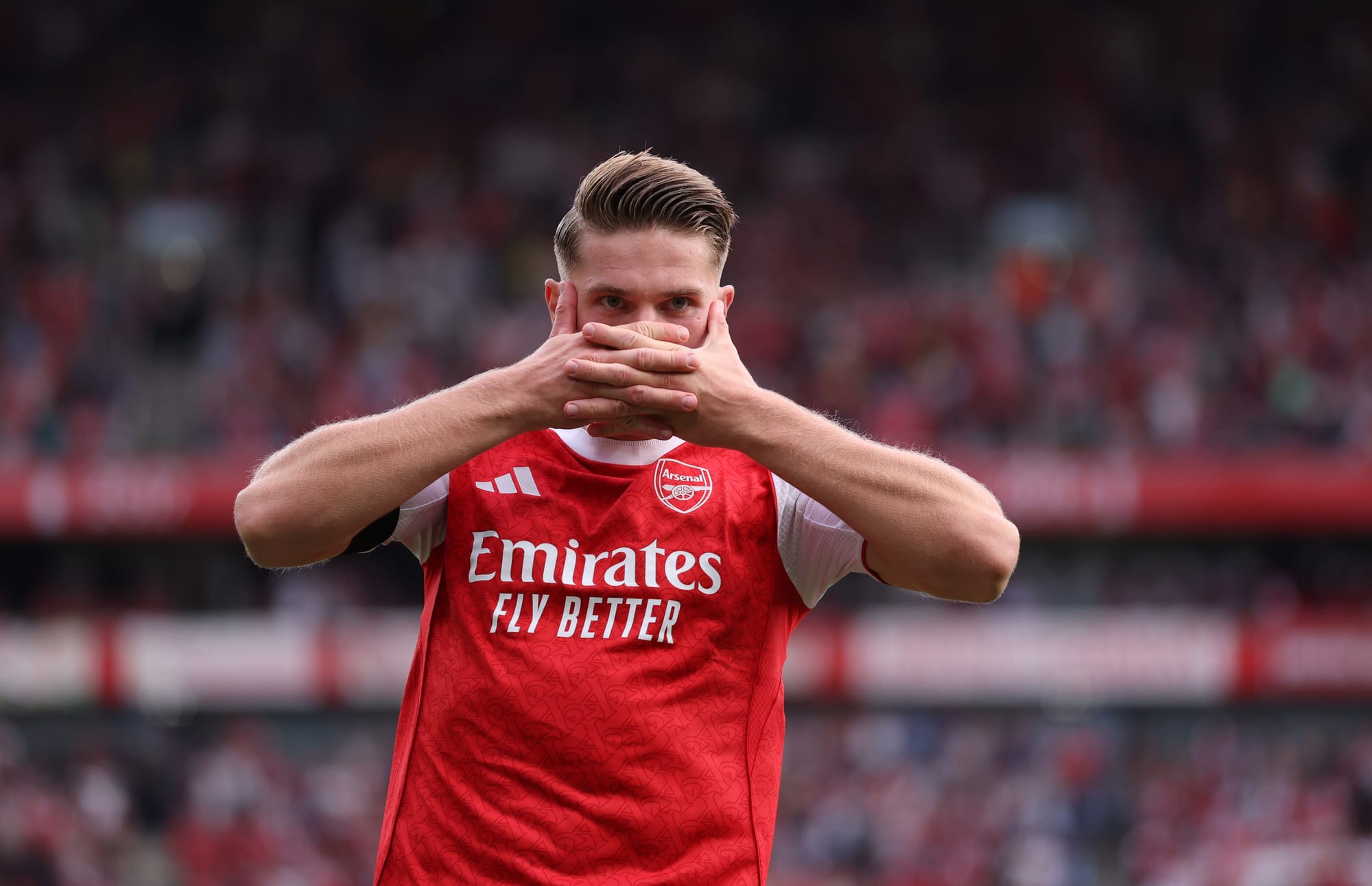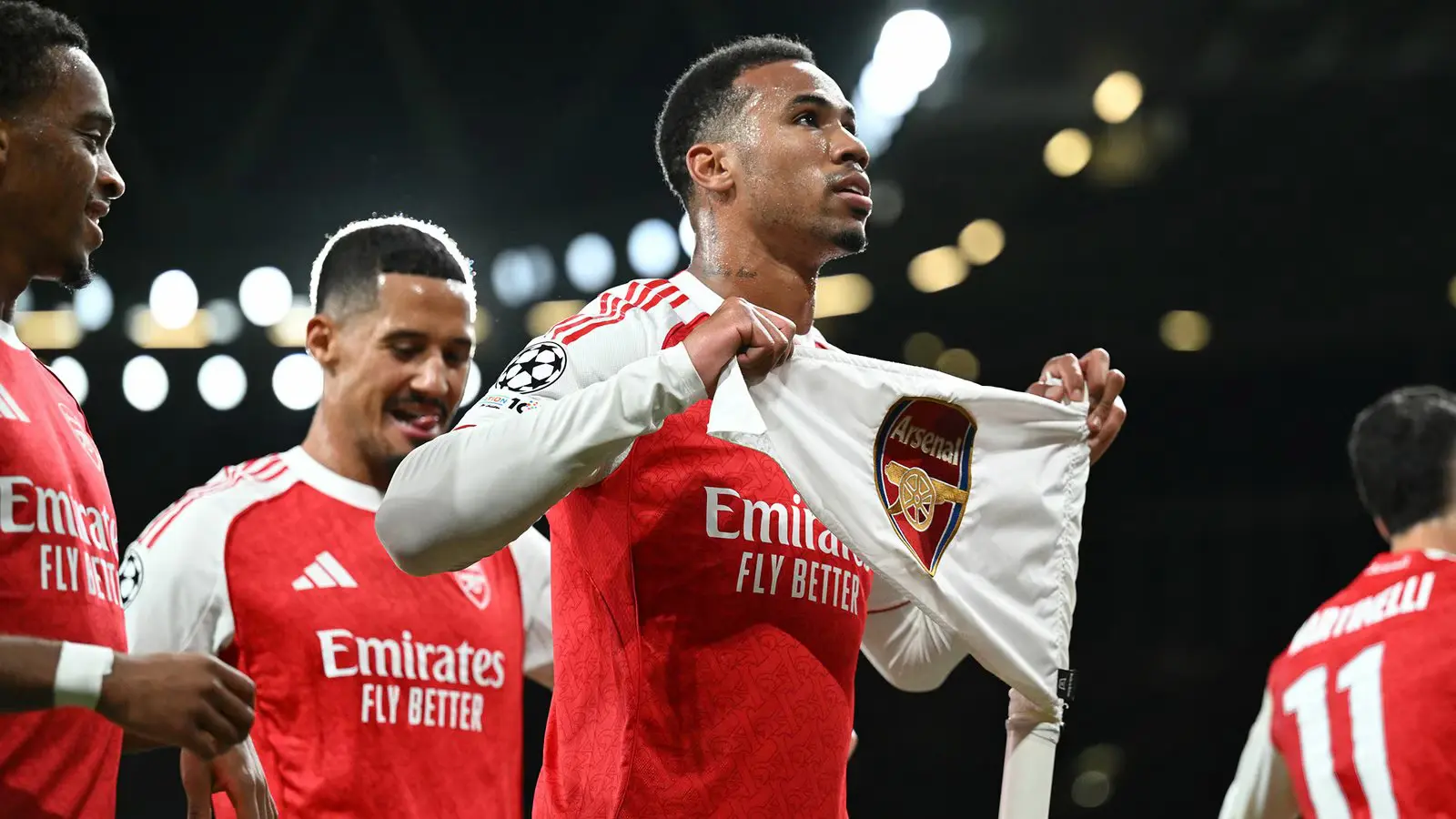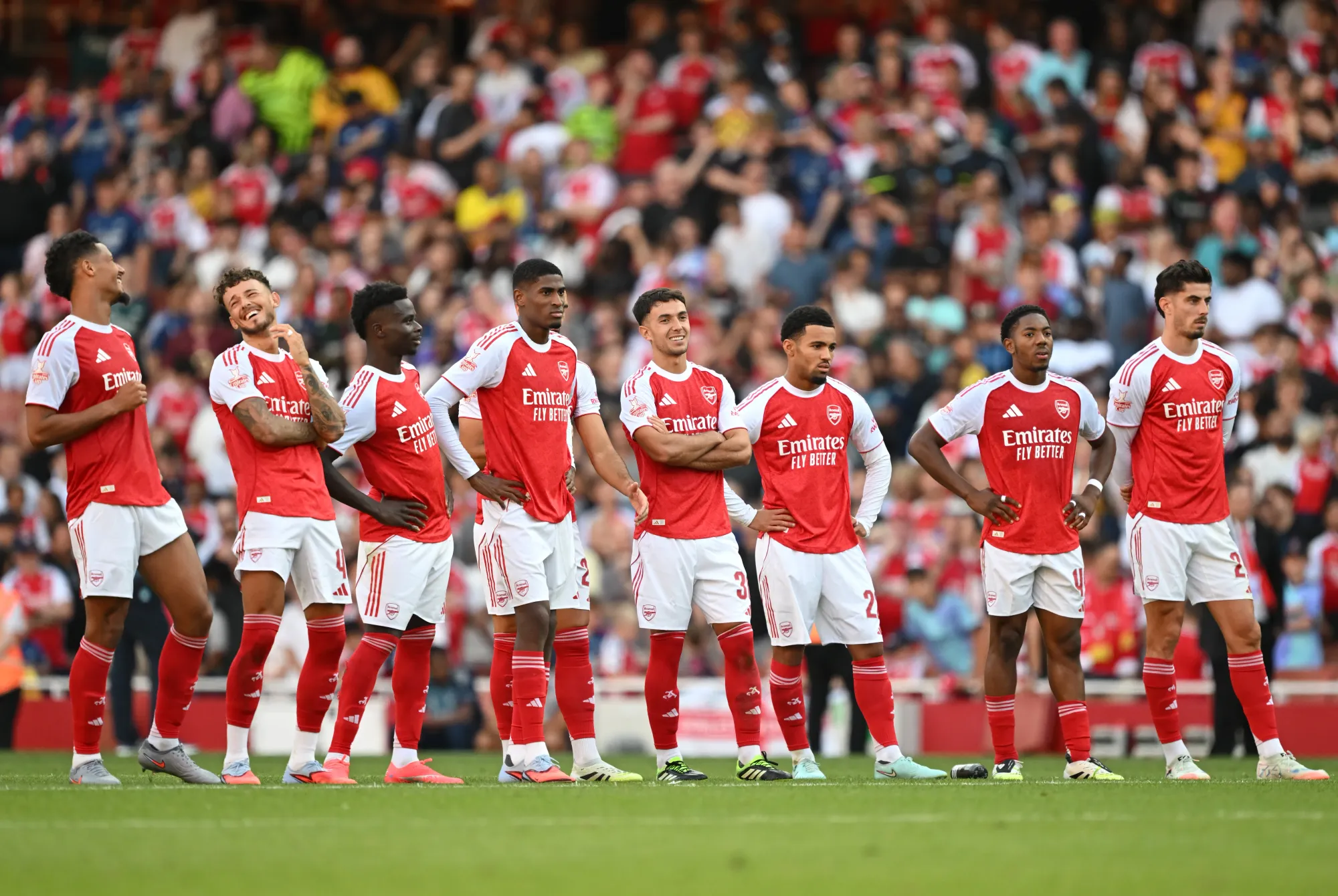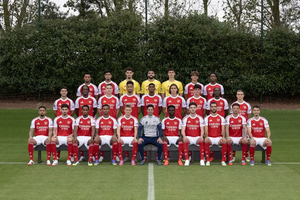The second international break has now arrived, with club football temporarily pausing, and whilst fans may be disappointed, the timing could not have been better for Mikel Arteta and Arsenal. Facing an attacking injury crisis with players such as Martin Ødegaard, Kai Havertz, Gabriel Jesus, Gabriel Martinelli, Noni Madueke, and Viktor Gyökeres all out injured, the team's depth has been severely challenged.
Even with these big absences in attack, Arsenal have managed the early part of the campaign with maturity. Their winning ability, even while missing so much creativity, reflects growth in Arteta’s tactics, having struggled in recent seasons to build around injuries. A hard-fought draw at the Stadium of Light in their recent 2-2 draw against Sunderland demonstrated both resilience and determination, qualities that have often been questioned in previous seasons but have already been shown three months in.
With only eleven games played, this feels like the right moment to reflect on Arsenal’s results and performances so far. The league table is beginning to take shape, and once again, Arsenal are among the leading contenders. There are plenty of positives to take from this side, with only a few areas that might raise concern.

The Emerging Strengths
The first few months have brought to light a number of emerging strengths within Arsenal’s game, signalling a team that continues to evolve and refine its approach.
A New Level of Defensive Command
Arsenal’s defensive performance this season has reached new levels. While solidity at the back has long been a hallmark of Arteta’s sides, this campaign has seen that foundation evolve into something even more refined. The team now defends with a balance and authority that reflect both maturity and confidence. When opponents attack, there’s a measured control to Arsenal’s approach, more composure, better shape, and a clear understanding of when to engage and when to hold their line.
The back line operates as a cohesive unit, supported by the new addition of Martin Zubimendi, whose presence has provided extra defensive support in transition that has been missing in previous seasons. Since his arrival, Arsenal have been conceding fewer chances, and the quality of those chances has declined sharply compared to past campaigns, making David Raya’s job a little bit easier.
Gabriel’s Dominance and Defensive Quality
At the heart of that defence is Gabriel Magalhães. The Brazilian has quietly become one of the most complete centre-backs in world football. The central defender has taken a step up in his game this season, a clear standout in the already strong defence.
Gabriel’s presence in the box is commanding. He wins aerial duels with ease, controls the game with his passing, and organises the defensive line with authority that proves why he is a part of the leadership group at the club. But beyond that, his influence extends to the attacking third, with his timing and movement from set pieces making Arsenal a constant threat from corners and free kicks. His goal threat has become so reliable that every Arsenal set piece feels like a genuine scoring opportunity.
Alongside him, Jurriën Timber has been a revelation. His technical skill, positional awareness, and ability to invert have brought versatility and technical flair to the right-hand side. On current form, Timber is among the best full-backs in the world, and since returning from an ACL injury last season, he has given Arsenal a defensive quality very few teams can match. Put simply, Arsenal now possess what might be the best defence in world football, disciplined, structured, and devastating when required.

Set Piece Specialism
An attribute of elite teams is the ability to win in multiple ways. Arsenal’s excellence at set pieces is now one of their defining weapons. Twelve of their twenty goals this season have come from set-piece situations, a huge figure that underscores the effectiveness of the club’s dedicated set-piece coaching setup.
Corners, free kicks, and even throw-ins have been turned into orchestrated attacking chances. Arsenal’s routines are drilled to perfection, and the variety in delivery, short balls, near-post flick-ons, and back-post overloads keep opponents guessing. While some may argue this reliance is unsustainable, Arsenal will not complain, and their mastery in this area makes them one of the most dangerous teams in world football when a dead ball is involved.
Squad Depth in Crisis
Perhaps the most revealing aspect of Arsenal’s start has been how well they’ve handled adversity. The injury list would derail most clubs, yet Arsenal continue to find solutions. Players have stepped up from the bench effortlessly, ensuring that the drop-off in quality has been minimal. Even without their main creative engine in Odegaard, Arsenal remain near the top for total goals scored, making full use of set pieces to relieve pressure on the attackers. It speaks volumes about the squad’s balance and quality, with Arteta and Berta successfully filling in gaps that the squad was missing.
Max Dowman’s record-breaking season
The emergence of Max Dowman has provided one of the most exciting subplots of the campaign. At just fifteen years old, he became the youngest ever player to feature in the Champions League, a record that immediately turned heads across Europe. Yet what has impressed most is not just his age, but his maturity. Dowman looks fearless and incredibly technically gifted. Against Leeds United, he won a penalty through quick thinking and sharp movement. His confidence on the ball and willingness to take responsibility suggest Arsenal have unearthed another special talent.
Arteta has spoken glowingly about Dowman’s mentality, describing him as a player who could be “massive” for the club. It is clear that even in limited appearances, Dowman has made a strong case for more minutes despite his age.
Overcoming Roadblocks
The comeback win at St James’ Park against Newcastle was a statement performance. Falling behind early, Arsenal showed character to overturn the deficit, something they rarely managed last season. In 2023–24, Arsenal won only three of ten matches after conceding first. This time, they displayed resilience and tactical maturity to turn a difficult away fixture into a defining victory. It symbolised psychological, tactical, and emotional growth for a team that had previously struggled at St James’ Park. It seems as if the players now believe they can recover from setbacks, and that, more than anything, might be the most important evolution of all.

Areas for Improvement
While the start has been impressive and may seem harsh, some fans may have some doubts over several key topics.
Reliance on Set Pieces
For all the success from dead balls, there is a risk of overreliance. With only eight goals from open play out of twenty, Arsenal currently rank tenth in the league for goals from open play. Injuries explain part of this imbalance, but the team must work out a way to score more from open play. As key creative players return, particularly Ødegaard and Madueke, the expectation is that Arsenal will generate more of these chances and, in turn, more open play goals. Their ability to create and convert opportunities should improve, but for now, it remains a minor concern worth noting.
Youth Player Progression
The academy continues to produce exceptional talent, but minutes have been harder to come by for some. Myles Lewis-Skelly, who was outstanding last season, has yet to start a league game. This may be tactical, with Calafiori’s strong form and the addition of Hincapié offering competition, but supporters are eager to see his development continue. Similarly, Ethan Nwaneri’s progression has slowed slightly. Expectations were high after his early breakthrough, but Arteta is managing his rise carefully. In truth, the depth of the current squad allows these young players to develop without pressure. Still, fans will hope to see more of them in cup competitions later this year.
Managing the Injury Problem
Injuries have tested Arsenal’s depth and will continue to be a key challenge. When the full squad returns, effective rotation and load management will be essential. Competing on multiple fronts, the Premier League, Champions League, and both domestic cups demand careful planning.
Should Arsenal advance to the latter stages of all competitions, particularly a potential two-legged EFL Cup semi-final in January, Arteta’s handling of player fitness will be decisive. The depth exists, but maintaining sharpness and fitness across the entire squad will require precision.

What to look out for
As the season progresses, several questions will loom over this Arsenal side.
The Strongest Lineup
When everyone is fit, what does Arsenal’s best eleven look like? The competition for places has never been fiercer. With Gyökeres in good form, how does Havertz reclaim a starting striker spot? With Ødegaard returning soon, will Eze shift to the left, despite Trossard performing excellently? The same question applies to Madueke, who was outstanding on the right until his injury. Although the defence and midfield are relatively straightforward to predict at the moment, the attack presents Arteta with a welcome headache. It will certainly be interesting to see who makes it in the starting squad when everyone is fit and healthy.
Dealing with Pressure
Arsenal have been here before, top of the table early, whilst playing brilliant football. The real question is how they handle the weight of expectation this time.
Last season’s title charge fell short yet again, and this time, the squad appears more composed, more experienced, and better equipped to handle the psychological side of the race. The test will come in the new year, when fatigue sets in and every point carries greater meaning.
Big Six Head-to-Heads
Results against the league’s top sides often define a season. So far, Arsenal have beaten Manchester United, drawn with Manchester City, and narrowly lost to Liverpool. With Chelsea and Tottenham up next, there is an opportunity to further strengthen their title credentials. Consistent performances against elite opponents would serve as a statement of intent for the season and underline that Arsenal truly belong among Europe’s best once again.

Key Takeaways
Defensive Foundation and Set Piece Mastery
Arsenal may have the best defence in the league, perhaps even in Europe. Their blend of organisation, structure and fluidity gives them a platform few teams can match. Combined with their world-class set-piece routines, this is a side capable of grinding out results even when not at their attacking best. In close matches, these qualities make all the difference. As seen in last season’s Champions League run, Arsenal can now win games through control, precision, and patience, hallmarks of great teams.
A New Season, A New Team
Compared to last season, Arsenal look stronger and hungrier for success. They seem to have learned from their setbacks and evolved into a side capable of sustaining pressure across all competitions. The desire of this group is what will make them genuine contenders for multiple trophies.
The Final Step
Ultimately, one question remains. Can this Arsenal team finally take that last step and lift a major trophy?
Early signs suggest they can. They are no longer a young, promising side trying to prove themselves. They are a mature, battle-tested team ready to turn hunger into success.
This may well be the season when Arsenal complete the journey from contenders to champions.




